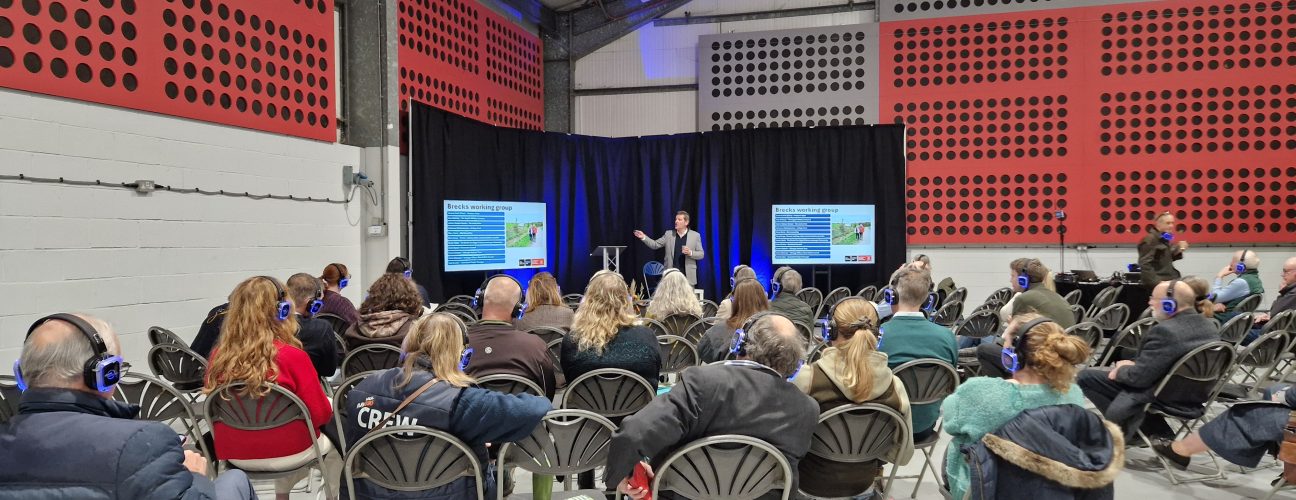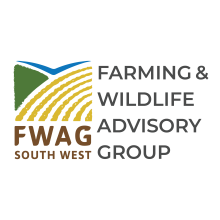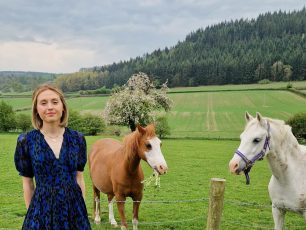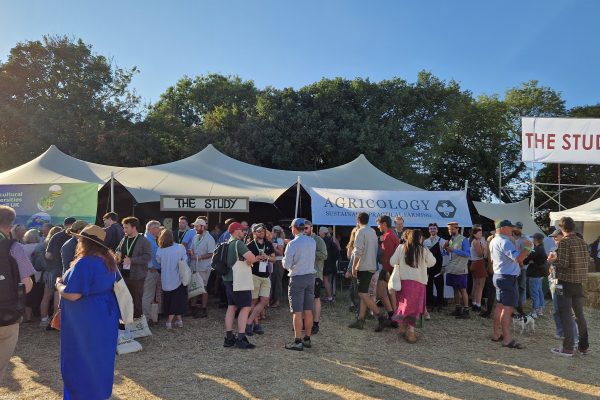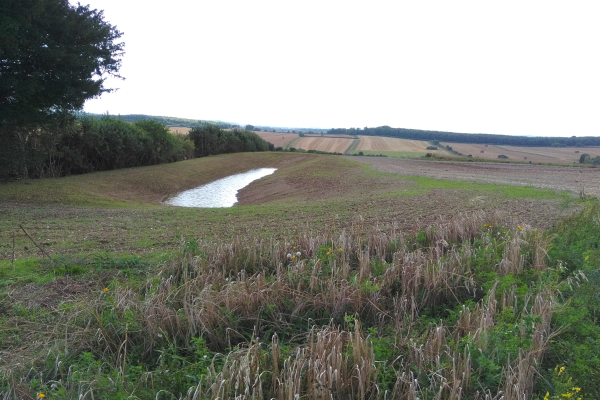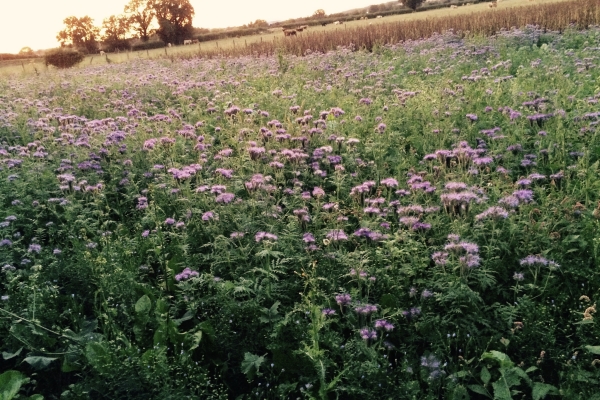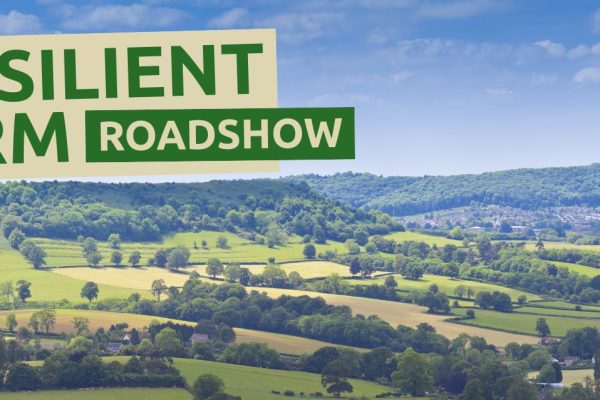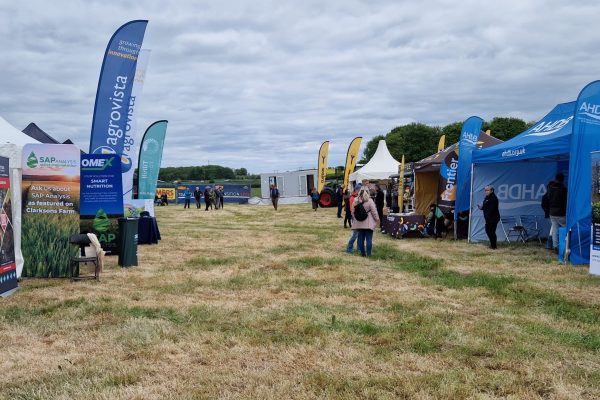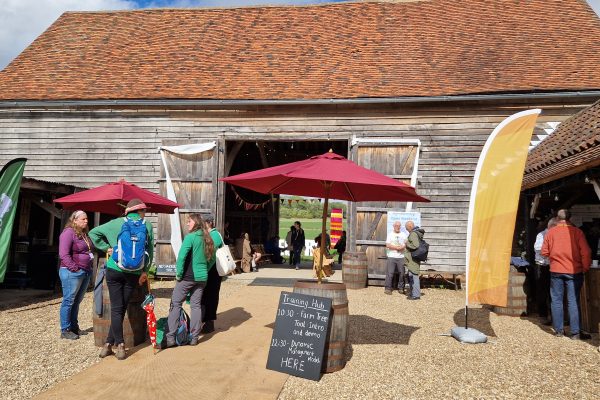Tuning in to Nature Recovery and Ecological Adaptation on a County Scale
The refrain “every farm (and farmer) is different” is frequently wheeled out in debates about farming and sustainability. But what does this really mean in the face of national-level conservation schemes and funding programmes that are often conceived and implemented from the top down, with little regard for the nuances and unique pressures of local contexts? This was a question I hoped to find some answers to at this event.
On 29th October, I had the pleasure of representing Agricology at the 2025 Norfolk Landscapes Exhibition and Conference. Organised by the Norfolk Farming and Wildlife Advisory Group (FWAG), this regional event is now in its second year following a successful launch in 2024. The conference took place at the Norfolk Showground, a few kilometres outside Norwich – a venue offering ample space for delegates and exhibitors within its cavernous exhibition hall.
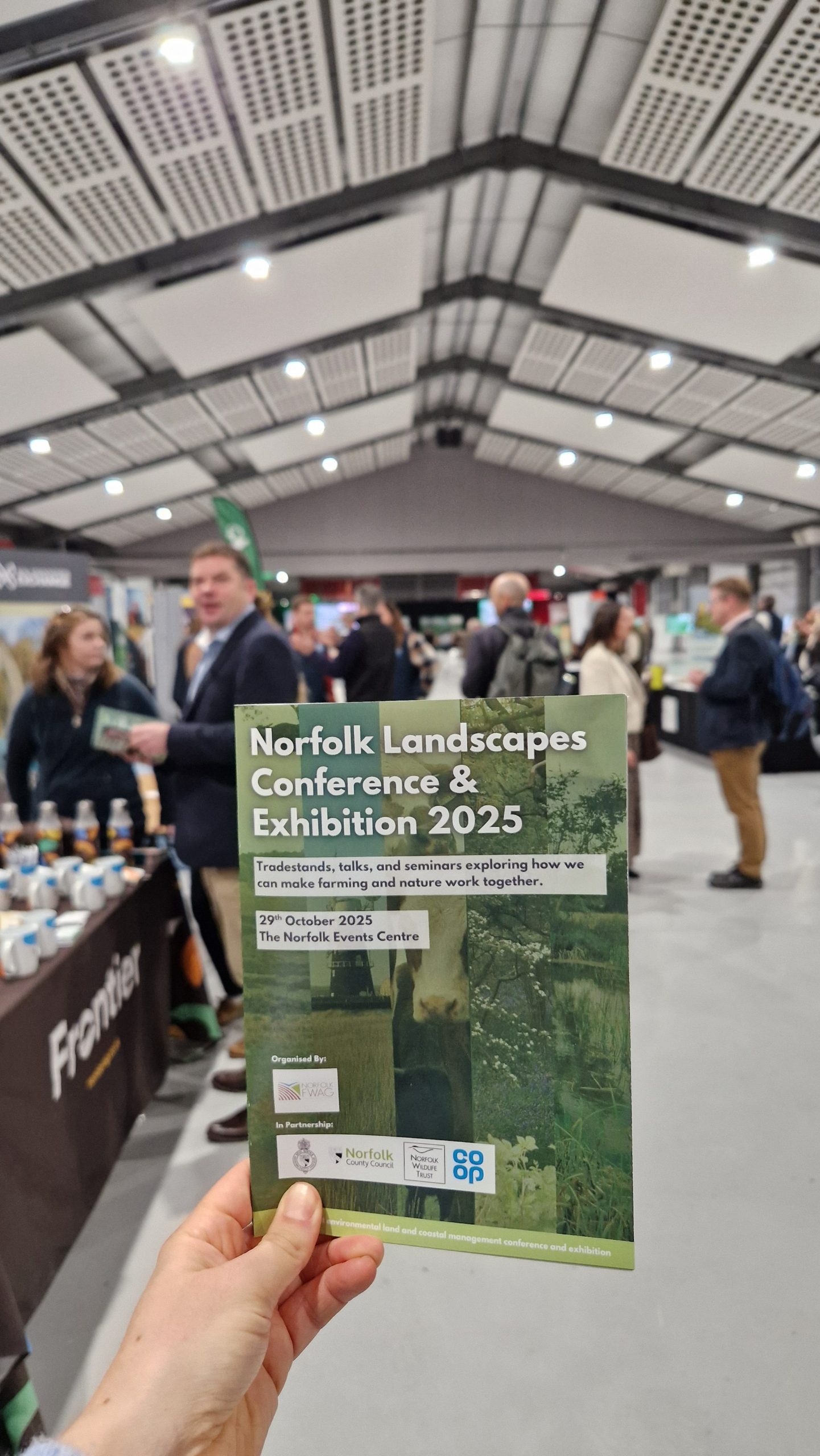
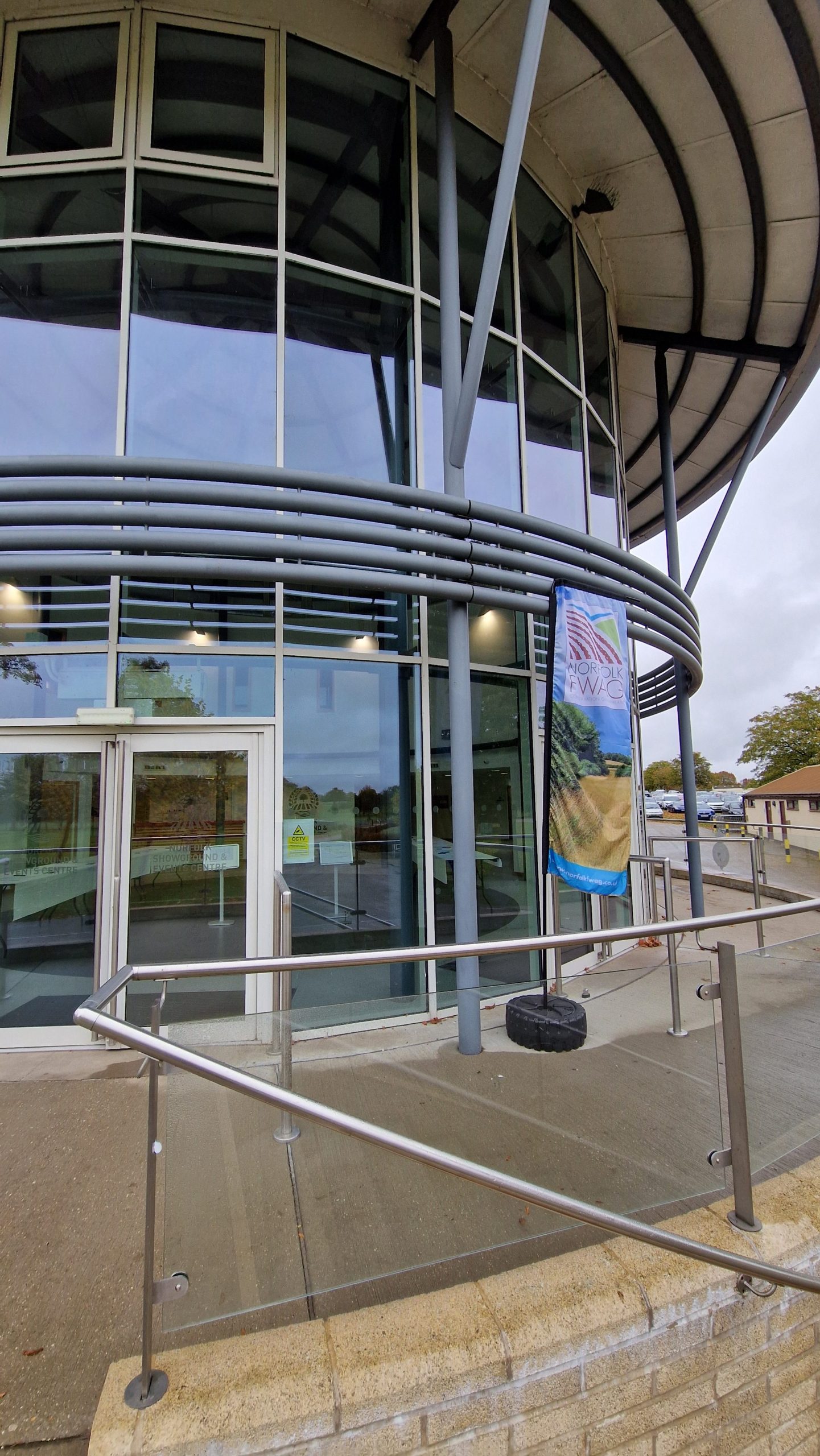
This year’s theme, “Adaptive Landscapes” encompassed the key topics of water, energy, and nature restoration. These were explored alongside discussions on funding environmental change, cost-effective land management, rural communities, and tourism. A strong emphasis was also placed on the role of AI and technology in driving the transition towards more sustainable farming systems – reflected both in the speaker line-up and session titles.
The day’s programme featured a morning of seminar-style talks, followed by an afternoon of keynote addresses and plenary sessions. The increasingly popular silent seminar format allowed multiple sessions to run simultaneously, with delegates tuning in to their chosen speaker via headphones. A wide range of ground was covered, including the role of Local Enterprise Networks, green finance and space technology, and why access to open spaces matters for nature.
The exhibition element of the event featured an impressive array of stands representing both regional and national organisations. On the Agricology stand, we were able to showcase some of our new projects and resources and engage in valuable conversations with farmers, land managers, conservationists and agri-innovators.
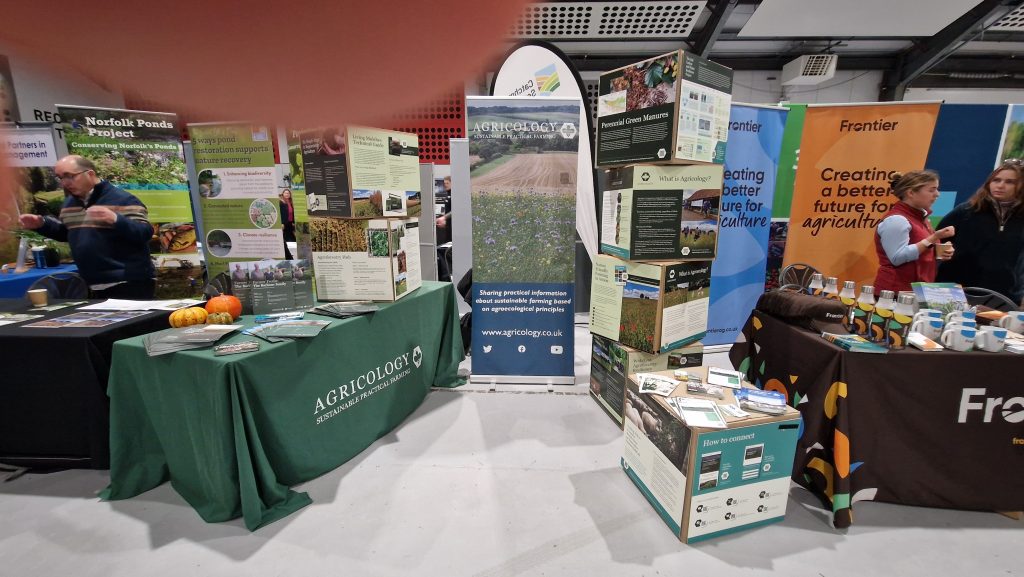
It was a pleasure to make new connections and reaffirm existing ones with key organisations operating in Norfolk and beyond. These included the Forestry England, Swallowtail, Norfolk Rivers Trust, Oakbank Game & Conservation, The Food and Farming Discovery Trust, The Land App, and many more.
After lunch – which included the treat of local field-to-fork venison sliders from Norfolk Wild Venison – the main conference began.
Clarke Willis, Head of Norfolk FWAG, opened the afternoon with a welcoming address, followed by Conference Chair Emily Norton, who set the tone for the discussions to follow. Norton reflected on how the concept of “nature recovery” can often be held back by static or nostalgic notions of “going back.” Instead, she urged us to move forward – to embrace change and learn how best to adapt to an evolving environmental and geopolitical climate.
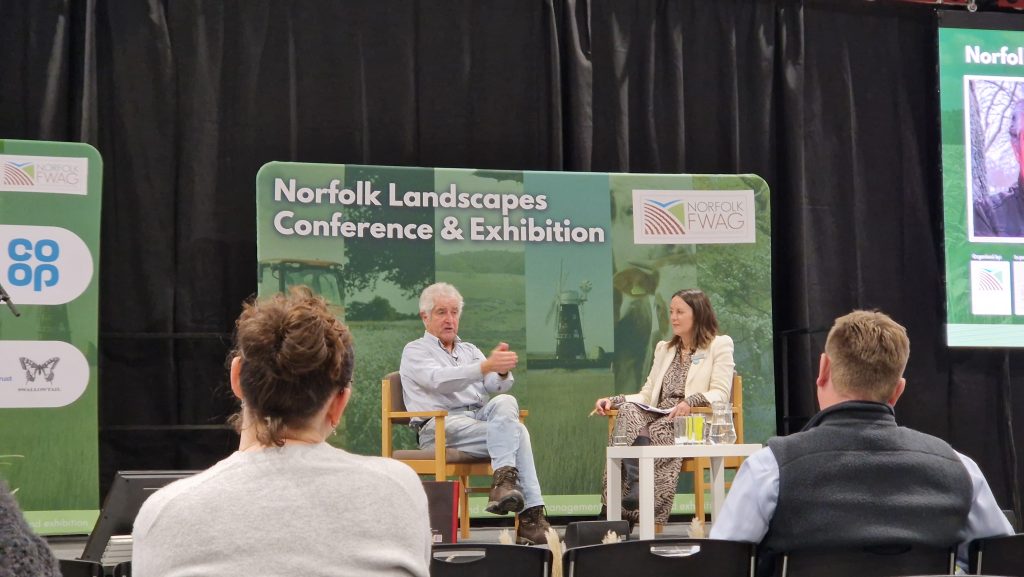
The keynote address was delivered by Tony Juniper of Natural England, who outlined the twin challenges faced by farmers and policymakers in the 21st century: extending global food security while tackling biodiversity and ecosystem loss. Juniper reinforced the intrinsic connection between food security and nature recovery, lamenting the tendency of government institutions to view the economy and the environment as separate spheres.
This sentiment was echoed by Poul Hoveson, RNAA President, who argued that the future of farming in Norfolk depends on maintaining economic viability while reducing environmental impact. He stressed that development and nature should not be competing narratives, but “two sides of the same coin.”
Next, Dr Iris Kramer drew on her academic and professional experience to discuss the role of AI in managing adaptive landscapes. I was fascinated to hear about her company ArchAI, which combines satellite imagery and deep learning to discover lost agricultural landscape features such as ponds, orchards, wetlands and hedgerows. Kramer spoke eloquently about how understanding these historic landscapes enables better-informed decisions around modern land use, drainage, flood risk, and conservation.
The day concluded with a panel discussion on adaptive landscapes featuring Ben Andrews (farmer and Nuffield Scholar), Rob Cunningham (The Nature Conservancy) and Will McBain (ARUP). When asked about “the single biggest shift in the future of landscape management,” McBain was quick to highlight the transformative potential of regenerative agriculture – a sentiment Agricology wholeheartedly supports. Cunningham suggested that the future lies in catchment-level water regulation, grounded in collaboration rather than piecemeal, farm-by-farm change.
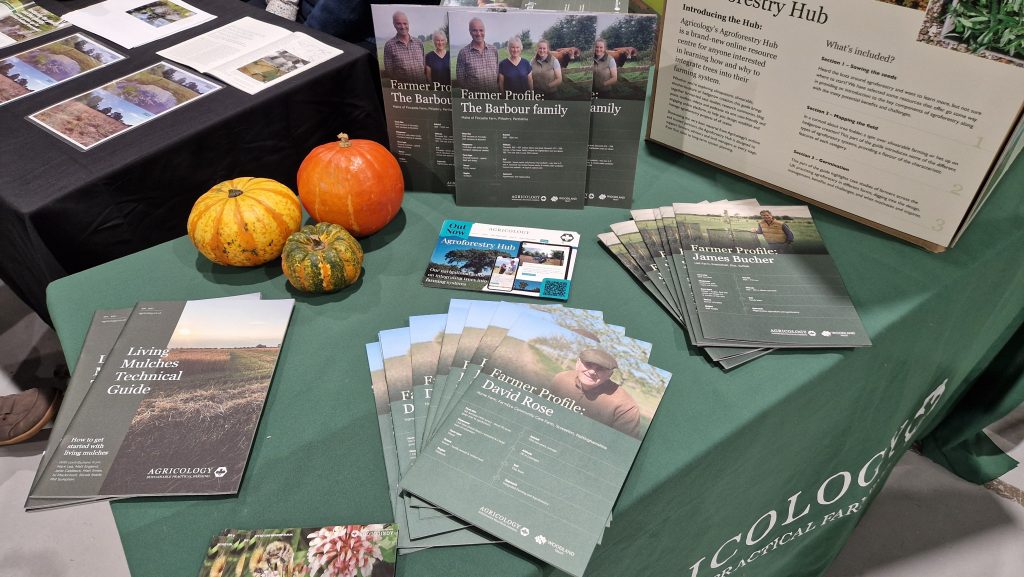
My key takeaways from the event:
- Truly adaptive landscapes can only be created through regional-scale approaches involving effective cooperation between multiple agencies and authorities.
- Engaging communities and local landowners is a critical step in the adaptation process. Strengthening farmer clusters and investing in educational programmes are both key to achieving this.
- More funding is needed to make nature recovery a reality, but private sector investment will only be effective if supported by strong policy frameworks at the national level.
- Technology and AI tools offer significant potential to drive positive change, and the conference showed a clear appetite for innovation among Norfolk’s farmers.
- By understanding how landscapes have evolved through centuries of human–nature interaction, technology can help guide land management decisions that are both sustainable and sensitive to local context.
A huge thank you to the excellent Norfolk FWAG team for organising such an inspiring and engaging day!
